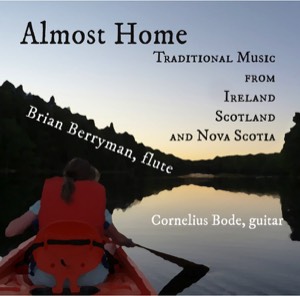
"It was the most entertaining concert you could imagine, leaving the audience with a smile on their face. This is extremely rare." -- Göttinger Tageblatt
About me
Just a few words about where I came from and where I'm headed...
Brian was raised in the small town of Liverpool, Nova Scotia, on Canada's east coast; he has lived and worked in Germany for over twenty years. He was born into a musical family: his mother was a music teacher and organist, his father was an enthusiastic amateur choral singer.
After humble beginnings, joining the the band at the local paper mill at age twelve, he has become one of the most sought after specialists on historical flutes in the current early music scene in Germany.
After completing his Bachelor of Music in Flute Performance at the University of Victoria, Canada and a Master's and Doctor of Musical Arts in Performance Practice at Stanford University in California, he studied baroque flute with Wilbert Hazelzet at the Royal Conservatory in The Hague, Netherlands, completing the "Certificaat Oude Muziek".
Brian appears throughout Europe and on numerous radio and CD recordings with such notable ensembles as The Amsterdam Baroque Orchestra, Barockorchester Stuttgart, Concerto Köln and the FestspielOrchesterGöttingen (FOG) of the International Handel Festival Göttingen founded by Nicolas McGegan and now led by Laurence Cummings.
With his ensemble La Ricordanza, of whom he is a founding member, he has recorded 5 critically acclaimed CDs. His solo recording, "Crossing the Border", and the concert programme of the same name, are a must-see for aficionados of stylistically adventurous and creative flute playing. His latest solo CD, "Almost Home", explores his Nova Scotian roots: Together with guitarist Cornelius Bode he presents a programme of traditional Irish and Scottish music, as well as music from Cape Breton on Canada's east coast.
Since 2006 he is principal flute of the period-instrument orchestra The Hannoversche Hofkapelle and can be heard as soloist regularly in their annual (and sold out!) New Year's Eve concert. Brian was a faculty member of the music school in Salzgitter, Germany for over ten years, teaching flute and conducting the youth orchestra, with whom he has won numerous prizes.
Upcoming appearances will include:
12.06.2023
Bach, Suite h-Moll, Brandenburgisches Konzert Nr. 5
Leipziger Bachfest
17.06.2023
Festwochen Uslar
18.06.2023
Musikwochen Weserbergland
08.07.2023
Beethoven, Symphonie No. 3, "Eroica"
Blaibach, Oberpfalz
02.09.2023
J.C.F. Bach, "Die Auferweckung des Lazarus"
Bückeburg
05.09.2023
Bach, Johann Sebastian, Suitein h-Moll (Barockorchester La Festa musicale)
Silbermann-Tagen
15.09.2023
Mendelssohn, Symphonie No. 4 ("Italienische")
Bad Elster
24.09.2023
Mendelssohn und Mozart, (mit der Hannoverschen Hofkapelle)
Kloster Maulbronn
27.09.2023
Bach, Matthäuspassion
Bachtage, Plön
1-7.10.2023
Works of Haydn and a newly-commissioned composition (!)
Hanover
25.11.23
Bach, Messe in h-Moll (Barockorchester Schirokko)
Laeiszhalle, Hamburg
19.11.2022
Brahms, Ein deutsches Requiem
Goslar
08.12.2023
Sonaten of Handel, Bach, Oswald and Mackintosh
Bissendorf
10.12.2023
Bach, Weihnachtsoratorium 1-3 (Hannoversche Hofkapelle)
Stadtkirche Celle
16.12.2023
Bach, Weihnachtsoratorium (Barockorchester Schirokko)
Hamburg-Niendorf
17.12.2023
Bach, Weihnachtsoratorium (Hannoversche Hofkapelle)
Hannover-Misburg
22.-23.12.2023
J.S. Bach, Cantatas zu Weihnachten (Bachorchester Hannover, Jörg Straube)
Marktkirche Hannover
31.12.2022
Silvesterkonzert der Hannoverschen Hofkapelle
Galerie-Gebäude, Schloss Herrenhausen, Hannover
Discography

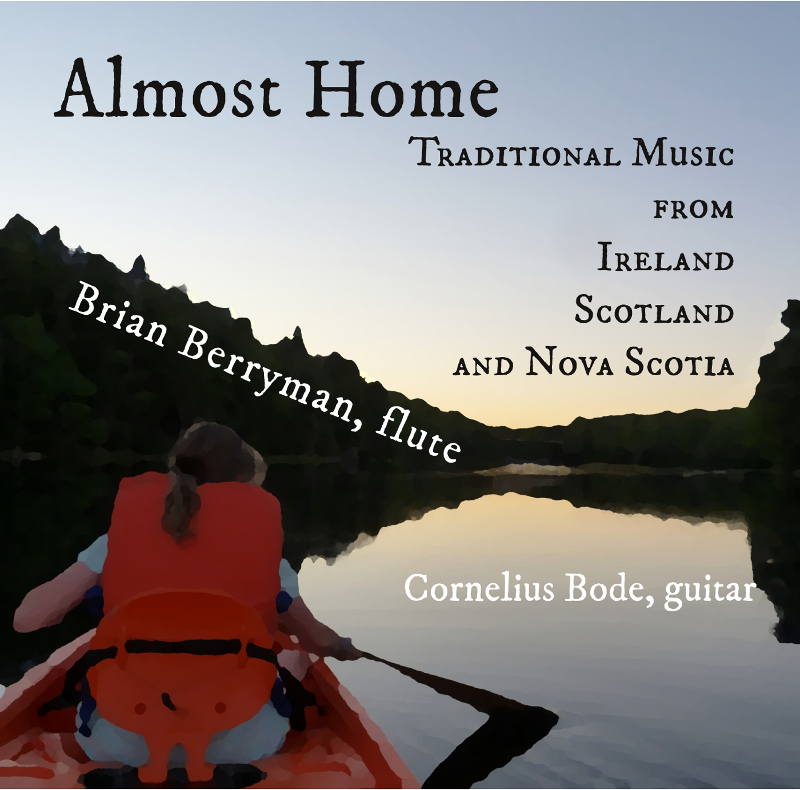
Almost Home
Almost Home: Traditional Music From Ireland, Scotland And Nova Scotia
What happens when a classically trained flutist from Nova Scotia, living in Germany, gets homesick? This CD is an attempt to answer that question. If you have ever arrived in a place for the first time and yet felt instantly at home, you will understand something of what playing traditional music means to me: Growing up in Nova Scotia means you're never far away from the sounds of Celtic music; after some years in Germany I decided to realize a long-held dream and began playing Irish flute. It became instantly clear to me that this was no mere hobby, nor was it just a sideline to the orchestral playing which forms the backbone of my career. After almost two decades of sessions and concerts I am only still dipping into the well; I have reconciled myself to having classical accents in my playing, just as I will never sound completely German despite years of trying! No matter: This traditional music welcomes those who approach it with admiration and respect, rewarding the player and listener alike. Traditional music players speak of their tunes as objects, heirlooms to be treasured and passed on as gifts. Not: "Where did you learn that?", but rather: "Who gave that one to you?". "I got this from my father" is a common reply. So when I'm playing a traditional tune, it is all mine for the moment, in that moment when I breathe life into it. Later I will pass it on to another player and it becomes his or hers, and so on. I like to hope that the Beethoven symphonies and Bach cantatas I play have gained something of this relationship; if music isn't personal why bother? And so even though I came from elsewhere I still have a strong sense of belonging; I'll never be a native, but neither am I a casual visitor. I feel welcomed; it is a great privilege and good fortune to be "almost home".
Purchase
https://store.cdbaby.com/cd/brianberryman?
Also available directly from me via PayPal for 14 € including shipping and PayPal fees
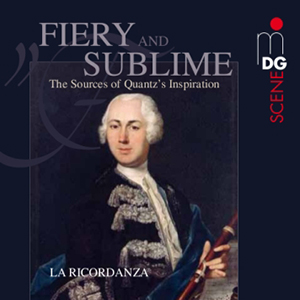
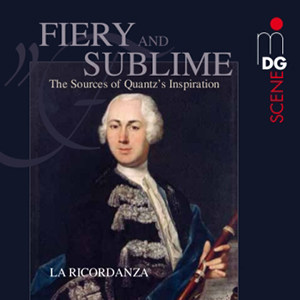
Fiery and Sublime
Available for purchase directly via PayPal, 18€ including shipping and PayPal fees. If you order a CD please send me an e-mail with your address and order details.
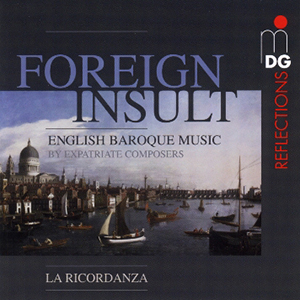
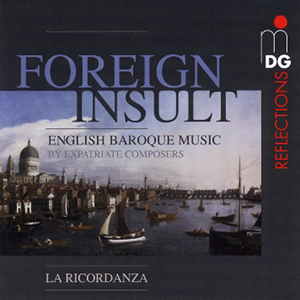
Foreign Insult
Available for direct purchase via PayPal. Please send me an email message with your address and order details.
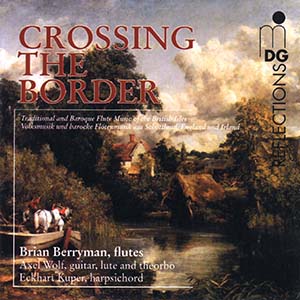
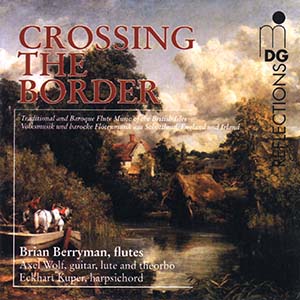
Crossing the Border
About the CD
The styles of baroque and traditional folk music often seem to be worlds apart, played by musicians who rarely cross the border into the other genre. Historically just the opposite situation was more common; the border between the two realms of baroque and folk music was a site of heavy traffic: Far from disdaining each other's style, violinist and fiddler often expressed mutual esteem for the other's music. Baroque composers made frequent use of folk melodies for their compositions; folk musicians in turn were influenced by the music of their colleagues at court. This CD selects some of the many baroque pieces which are variations on traditional melodies, interspersed with Irish and Scottish dance tunes from 18th-century sources or commonly heard in pub sessions today.
Content
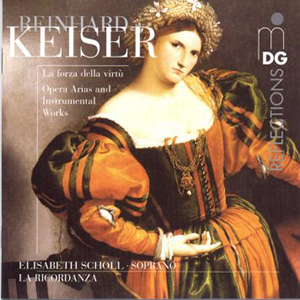
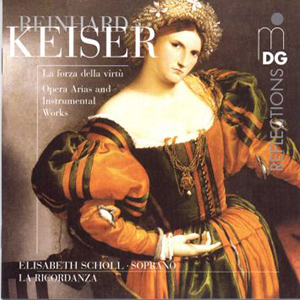
La forza della virtu
About the CD
Keiser's friend and supporter Johann Mattheson, a renowned theoretician and composer resident in Hamburg, never tired of singing his praises in print. Keiser's music is, for him, above all "galant, loving", and conveys "all the passions to which the human heart is most prone."
Content
Available for direct purchase via PayPal. Please send me an e-mail with your address and order details.
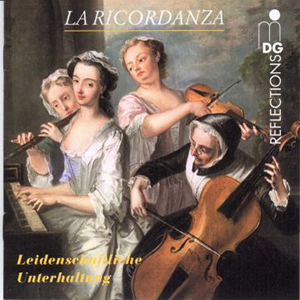
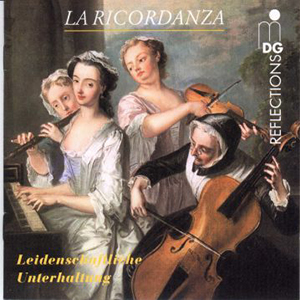
Leidenschaftliche Unterhaltung
About the CD
"...a well written concerto...resembles a passionate conversation between the soloist and the orchestra accompanying him; the soloist communicates his feelings to the ensemble; the ensemble applauds him with briefly inserted imitation, soon it confirms his expression; in the Allegro it tries to stoke the fire of his enthusiasm even further..."
Content
Available for direct purchase via PayPal. Please send me an e-mail with your address and order details.
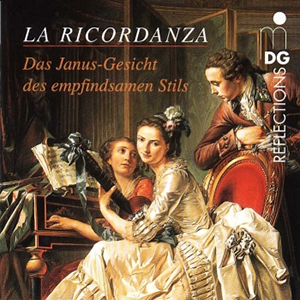
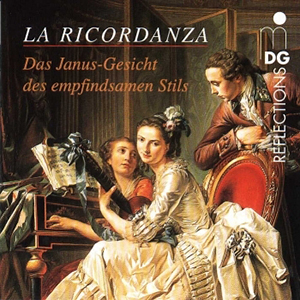
Das Janusgesicht des empfindsamen Stils
About the CD
In the second half of the eighteenth century music was Janus-faced: Like the ancient Roman god of doorways, beginnings and endings, music was focussed simultaneously on its baroque past and classical future. In attempting to depict stronger passions in music than was hitherdo deemed acceptable in public, composers strained the formal boundaries of music to their breaking point. Composers like Carl Philipp Emanuel Bach and Johann Gottlob Janitsch experimented with unresolved dissonances and speechlike phrasing, in an effort to expand the possibilities of musical expression within prevailing convention.
Content
Quartet in B Flat Major for Oboe, Violin, Viola and Violoncello
Available for direct purchase via PayPal. Please send me an e-mail with your address and order details.
YouTube
Clips from Brian's YouTube channel.
This set of "Old Scots Tunes" is also available on the "Foreign Insult" CD. The video is a live concert recording from Schloss Salder, Germany.
From the Irish Pub in Göttingen at our concert "Händel Goes Pub": Three Breton An Dros, also popular in the Irish folk scene!
Another set from our Göttingen Irish Pub concert, a mix of a slow American folk lament, a slow Irish reel and some fast Cape Breton fiddle music!
The beautiful Andante from Bach's flute sonata in E minor, recorded live at Schloss Salder, Germany.
There are further YouTube videos of CDs I have played on, posted by other YouTube members. Here are some links:
With La Ricordanza:
J. J. Quantz - Sonata for flute, recorder & continuo in C (QV 2: Anh. 3)